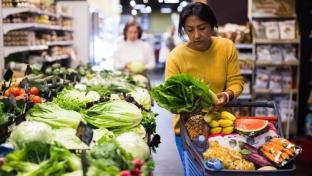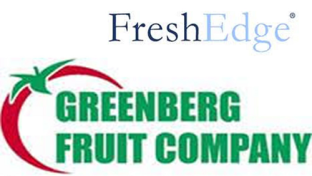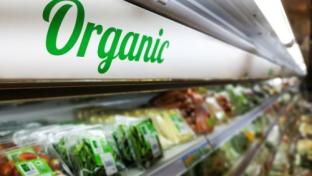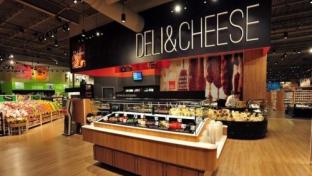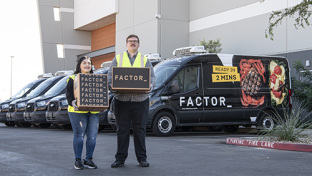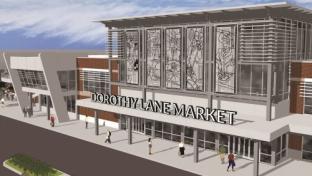Salads: Meeting Consumers' Quest for Eating Better in a Convenient Way
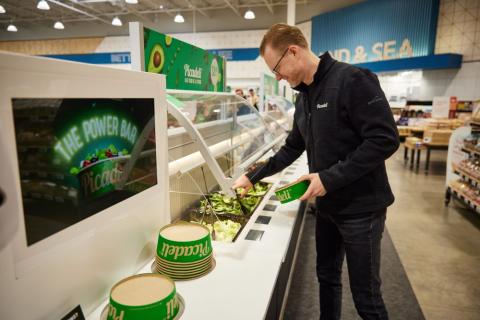
Just like a tossed salad, there are a lot of things going into salad segments at grocery retail. For one thing, shoppers can find salad ingredients and salad solutions at many different touchpoints throughout the store, as grocers and suppliers strive to meet interest in fresh, good-tasting and convenient foods.
Consumers’ quest to eat better and their increasingly splintered shopping journeys are playing a role in the greater variety and positioning of salad offerings. It’s also helping to lift these items: Research from Chicago-based Circana shows that the combination of prepackaged salads and salad bars is generating $4.3 billion in annual sales.
[Read more: "How Refocused Promotions Can Move the Needle in Produce"]
While shoppers are looking for more options, they remain conscious of price; new insights from Circana, for example, affirm that price sensitivity in the fresh produce department has increased. The latest “Power of Produce” report from FMI — The Food Industry Association shows that while fresh produce consumption is flat as many shoppers rein in spending, new meal occasions and consumers’ penchant for complementing restaurant meals with grocery-bought side dishes can keep salads and salad fixings in people’s carts.
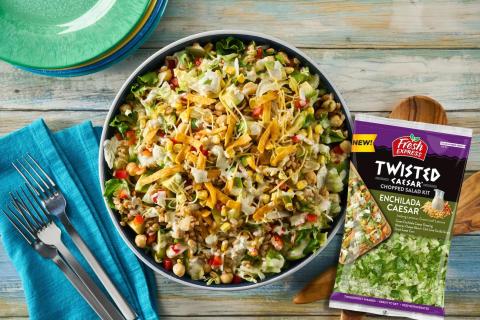
Raising the Bar — Again
The pandemic-era hiatus in salad bars — and with it, the predictions that salad bars would be a thing of the past — is decidedly over.
“Although salad bars closed during COVID and retailers were fairly successful with prepacked salads, now that we are in a post-COVID environment, we are seeing many of our members reopen salad bars. Consumers are flocking to them,” notes Rick Stein, VP of fresh and frozen at Arlington, Va.-based FMI.
Stein underscores the DIY appeal of these destinations. “[Consumers] love the ability to customize and personalize their salad,” he asserts. “Their fears from the early days of the pandemic have vanished, and the salad bars are busier than ever.”
Some grocers took the opportunity to reinvent their salad bars at a time of industry disruption and simultaneous technological innovation. St. Louis-based Schnuck Markets Inc. teamed up with Swedish tech solution provider Picadeli to add tech-enabled salad bars; the self-service salad bars are linked to a cloud-based system that controls temperature and, ultimately, freshness. Picadeli’s salad bars can be found in more than 50 Schnucks and Eatwell Market locations.
“Our initial plan was an expanded pilot of 22 locations,” says Geoff Wexler, president of deli and prepared foods at Schnucks. “However, based on the positive feedback from both teammates and our customers, we accelerated our expansion into more than 50 locations. More growth is certainly possible in the future.”
While consumers enjoy the ease and convenience of preparing their own salads, retailers can optimize labor through features like artificial intelligence (AI)-based ordering and use data on shoppers’ preferences and consumption habits.
“As a grocer, we are faced with the unique challenge of both a tight labor market and the demand from our customers for a memorable in-store experience that will keep them shopping with us,” explains Wexler. “The Picadeli AI platform and logistic solution provides a reduced labor commitment that delivers a healthy, affordable and fresh salad bar to our customers while enabling more time for our teammates to focus on customer engagement.”
Albertsons Cos. is likewise testing Picadeli’s smart salad bar at several stores on the East Coast. The Boise, Idaho-based company installed the equipment at six Safeway, Acme and Kings locations in Washington, D.C.; Maryland; and New Jersey over the past year.
As they restart and revamp salad bars, food retailers continue to merchandise grab-and-go salads in the deli and prepared food areas. Many, if not most, grocers offer prepackaged salads in their respective meal solution displays. These salads include traditional varieties like garden, Caesar and Cobb salads, as well as more inventive recipes that may or may not include proteins.
Anne-Marie Roerink, principal at San Antonio-based 210 Analytics LLC, noted that such offerings meet core shopper needs.
“Retailers truly set themselves up for success in prepackaged,” says Roerink. “Many carried a variety of sizes, from a big family dinner salad to a lunchtime one-person portion. Varieties include the big winners, but also take advantage of introducing people to new flavors through limited-time offers.”
She believes that consumers are more amenable to these products, given the changing landscape over the past few years.
“While salad bars closed, retailers very quickly moved to prepackaged salads and that helped offset the revenue that was generated by the salad bar,” notes Roerink. “In fact, many retailers found that it more than offset those losses. When salad bars made a comeback, sales didn’t shift back from packaged to self-service, but rather added to it.”
Prepackaged salads can spur overall higher baskets, she adds: “Salads can also be the ideal platform to introduce people to some of the other assortment in the deli, in particular prepared meats, with salads including rotisserie chicken, pulled pork or barbecue pork, which can lead to all sorts of other purchases down the road.”

Package Deal
Meanwhile, in the produce section, salad kits represent another solution for shoppers who don’t have the inclination, time or on-hand ingredients to make their own salad.
According to FMI’s 2023 “Power of Produce,” sales of salad kits grew 2.5% last year to top $3.8 billion. Salad blends, while posting a 2.5% decrease in sales, still rang up $1.1 billion in sales, the report found.
Noah Robbins, founder and CEO of Brooklyn, N.Y.-based Ark Foods, agrees that salad kits are in demand, noting that they’ve “seen double-digit growth over the past year.” Ark Foods currently offers four varieties of chopped salad kits: Caesar-ish Kale, Crunchy Sesame Ramen, Southern BBQ Ranch and Sweet Kale Lemon Poppyseed. The plant-based salads are all non-GMO verified, pre-washed, and ready to eat.
Other salad makers are developing new products to diversify this subcategory. Fresh Express Inc., for example, recently added three new offerings to its chopped salad line: French Bistro, Smokehouse and Twisted Caesar Enchilada. The Salinas, Calif.-based brand also launched a new French blue cheese salad kit. For its part, the Mann Packing subsidiary of Coral Gables, Fla.-based Fresh Del Monte launched salad kits co-branded with Asian restaurant chain P.F. Chang’s.
While many salad kit brands mix up dressings and add-ins like proteins, cheeses, eggs and nuts, others are offering a fresh take on greens. The Conscious Foods brand from Durham, N.C.-based food tech company Pairwise, using Crispr gene-editing technology, has introduced salad kits featuring leafy greens from the same family of Brussels sprouts and kale, but with a buttery flavor that eats more like a traditional salad green.
Another hotbed of R&D activity comes from hydroponic growers. As they expand their businesses and distribution nationwide, some are also moving beyond greens into salad kits. New York-based vertical-farming company Bowery recently augmented its ready-to-eat salad line with a new sesame ginger salad kit, made with crispy leaf lettuce, roasted edamame, crispy wontons and sesame ginger dressing.


